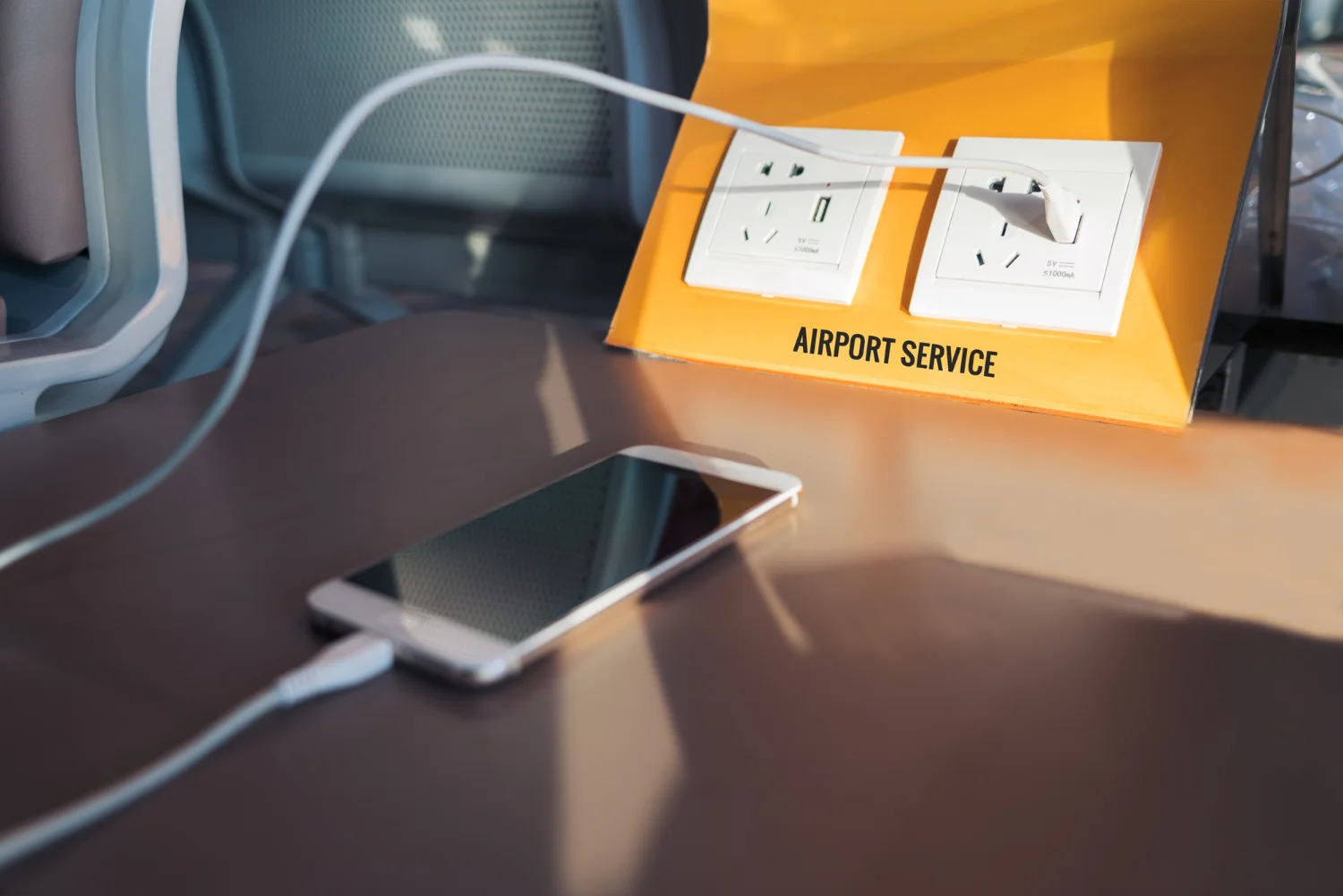Don’t Get Squeezed: The Danger of ‘Juice Jacking’ for Summer Travelers
As summer swings into full gear, many of us are jetting off to well-deserved vacations. But while we prepare for relaxing beach days and adventurous hikes, cyber criminals are gearing up for their own season of activity. This time, they’re hoping to catch vacationers off-guard with a cyber-attack known as ‘juice jacking’.
What is 'Juice Jacking'?
The term ‘juice jacking’ was first coined back in 2011, following a demonstration at the DEFCON hacker convention, where researchers set up a fake mobile charging station to highlight the risks associated with these public amenities.
‘Juice jacking’ is a type of cyber-attack that occurs when hackers modify public USB charging ports — such as those found in airports, hotels, or cafes — to steal data from or install malware on the devices of unsuspecting users.
How 'Juice Jacking' Works
In a ‘juice jacking’ attack, the malicious code is installed in the USB charging station. When a device is connected, the code can either steal data directly from the device or install malware that continues to collect information over time. This type of attack can be effective because many users are unaware of the risk, and public charging stations are a godsend for travelers with low battery levels.
The Impact of 'Juice Jacking' for Insurance Agencies
For insurance agency owners, you may need to stay connected with your work, accessing sensitive business data or communicating with clients. Falling victim to a ‘juice jacking’ attack can lead to disastrous consequences, compromising not just your personal data but also your business data, and worse, your clients’ confidential details.
A successful attack could potentially grant a cybercriminal access to your agency management system, your emails, or your financial records, leading to data breaches, identity theft, financial fraud, and even business interruption. And because the malware can remain active on your device, hackers can continue to harvest your data long after you’ve unplugged from the charging station.
Imagine having to explain to a client that their personal information was compromised because of a charging port you used at a hotel. Beyond the financial implications and potential lawsuits, the reputational damage could be substantial and irreparable.
Implications for Your Clients
In the unfortunate scenario where your clients fall victim to ‘juice jacking’, the aftermath could be devastating. From identity theft to financial fraud, the impact can be significant and distressing. As their insurance provider, you could see a surge in claims related to these issues.
Cybersecurity insurance is a burgeoning field, and many policies cover financial losses due to cyber theft or fraud. If a client’s personal or financial information is stolen because of a ‘juice jacking’ attack, they could file a claim to cover their financial losses.
For businesses that lose sensitive data due to ‘juice jacking’, the consequences can be even more severe. They could face regulatory fines, legal expenses, PR nightmares, and even lawsuits from affected customers. As their insurance provider, these business clients might submit claims under their cyber liability or business insurance policies.
Protecting Against 'Juice Jacking'
The good news is that protecting yourself and your clients from ‘juice jacking’ is relatively simple. Here are a few tips to help you stay safe:
- Use AC Power Outlets: Rather than using USB ports, plug your device into an AC power outlet. It’s impossible for data to be transferred through these outlets, making them a safer choice.
- Carry a Portable Charger: A personal, portable charger can be a lifesaver when you’re traveling. You’ll never need to worry about finding an outlet or using a public USB port, and you’ll have control over where you charge your device.
- Use USB Condoms: Yes, you read that right. These small devices, also known as “charge-only adapters,” block the data pins in USB cables and allow only power pins to connect through. They can be purchased online and are small enough to keep in your travel bag.
- Keep Your Devices Locked or Turned Off: While it won’t completely protect you, keeping your device locked or turned off when you’re charging it can help prevent some types of ‘juice jacking’ attacks.
- Keep Software Up to Date: Regularly updating your device’s software can also provide some protection, as updates often include patches for security vulnerabilities.
Wrap Up
As cyber criminals continue to evolve their tactics, awareness is the first line of defense. By understanding the risk of ‘juice jacking’ and taking steps to protect your devices, you can ensure that your vacation is memorable for all the right reasons — not because you fell victim to a cyber attack.
So, remember to pack your cybersecurity savvy along with your sunscreen this summer and stay safe out there.
Secure your summer vacation today with a FREE risk assessment from our expert team. Let us help you safeguard your agency’s sensitive data and prepare effectively against juice jacking and other cyber threats. Give me a call at 646-374-1820 or email me at walter@motiva.net



